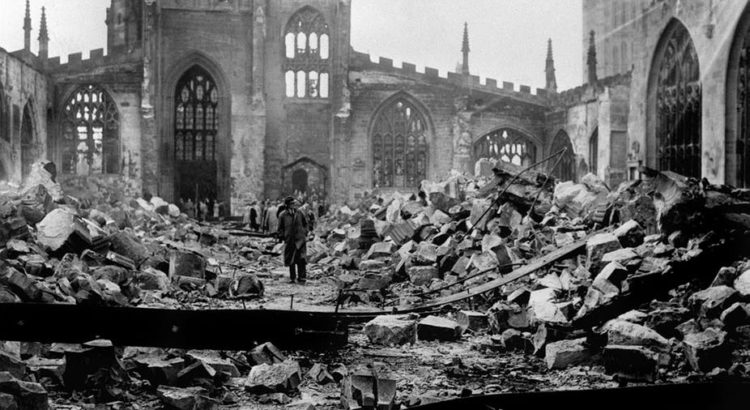Benjamin Britten’s War Requiem was commissioned for the re-consecration of Britain’s Coventry Cathedral, a beautiful church tragically destroyed in a World War II bombing. Britten himself was a staunch pacifist who had registered as a conscientious objector during the war, and the unique combination of these two elements gave birth to a piece that cuts through the gloss of glorified war stories into the more complex, tragic truth of the raw destruction of war. The text of the 80-minute choral piece is assembled from the Latin Mass for the Dead and the poems of Wilfred Owen, a World War I soldier who was killed just a week before the armistice at the young age of 25. Owen’s poetry is plainly anti-war, and the first of his lines in the piece is the chilling “What passing bells for these who die as cattle?”.
The requiem was presented as the collaboration between the Ann Arbor Symphony Orchestra, the UMS Choral Union, the Ann Arbor Youth Chorale, as well as three vocal soloists. The addition of the children’s chorale as specified by the original work adds a uniquely haunting aspect to the piece, a reminder that war ultimately results in a great deal of innocence lost, and the sacrifice of young lives with full futures ahead. Britten alternates between dissonant chanting mixed with layers of percussion and smooth, lyrical passages as the piece glides from movement to movement. Yet throughout the entire piece, the atmosphere is solemn, almost haunting. Britten refuses to let the audience forget why the piece was conceived, as a response to a tragedy brought about by the senselessness of war. It is impossible to hear the words of Owen echo through the auditorium in the rich tenor of soloist Anthony Dean Griffey without feeling an acute sense of what we have lost to the cruelty of war. Owen himself was a poet who garnered an abundance of post-humous acclaim despite his short career and the few poems he wrote; his career was brought to an abrupt end by a premature death on the battlefield.
Owen is merely one of many young talents, or simply young people, or people in general, whose lives were stolen from them by the merciless combat between sides. War Requiemserves as a haunting reminder that war is not a necessary evil, nor is it one we can afford to distance ourselves from. In the United States, it is perilously easy to turn a blind eye to those suffering from wartime brutality in other countries and in the modern age it is perilously easy to designate war as a “necessary evil”, a tragic yet inevitable byproduct of civilization. Yet as Britten wants us to remember, in a society as advanced as ours, the fact that we have accepted senseless violence over superficial causes as the price of civilization ought to haunt us, and we ought to remember that we have more power over our fates than we like to admit.


